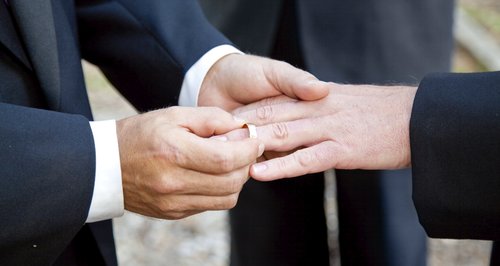On Air Now
The Capital Weekender with Meg McHugh 10pm - 1am
28 December 2018, 07:30 | Updated: 28 December 2018, 07:33

Around one in 10 people in Scotland would not accept someone of a different religion to them being elected as their MSP, a study has suggested.
Analysis also found 11% would not accept an individual with a different faith marrying a relative.
The report, published by the Humanist Society Scotland, surveyed around 1,000 people in the country to evaluate their tolerance on a range of issues.
Its conclusions suggest that despite Scotland having a positive reputation for inclusiveness and acceptance of others, a "hidden intolerance" remains.
Survey respondents were also asked about their views on same-sex relationships, with 67% stating they do not believe it to be wrong.
But 20% of those asked said they do believe same-sex relationships are wrong, while 8% said they did not know, and 5% preferred not to say.
The number of people who think same-sex relationships are wrong rose to around one in three amongst male respondents.
Humanist Society Scotland described some of the findings as "concerning".
Chief executive Gordon MacRae said: "Overall, this research paints Scotland as a country accepting of different religious or non-religious outlooks.
"However there are some findings of concern. There has been unacceptable incidents in the past of people attempting to use religious positions to advocate against voting for candidates in an election.
"Thankfully this is shown to be out of touch with the overwhelming majority of people in the country who hold much more inclusive values and believe religious leaders should not attempt to sway people's votes.
"It is disappointing to see continued opposition to same-sex relationships amongst a minority, but nevertheless sizeable, proportion of the community.
"As humanists, we support individuals living a loving life with those who make them happy. There clearly continues to be work done to ensure Scotland is a fully inclusive nation for LGBT people.
"The Scottish public have also shown their awareness of those who attempt to use religion as a tool for division.
"Over three-quarters said they felt some hard-line religious people were too intolerant of others and believed in no way should religious leaders attempt to influence people's democratic votes."
A spokesman for the Church of Scotland stated it was positive to see the report noting Scotland as a largely tolerant and inclusive society, however said that more work must be done.
"The Church of Scotland works continuously to nurture good relationships with people of all faiths and none," he said.
"Christians, and all people of faith, are shaped and influenced by what they believe. They believe that Jesus challenged the falsely pious and intolerant of his age and of every age.
"His message was radically challenging of those who thought that they had it all worked out - what was right and what was wrong - and it remains so today.
"In recent years, the Church has forged strong friendships through our interfaith and ecumenical work.
"We also partner with a wider range of groups and charities, regardless of their religious affiliation, to improve lives in Scotland's most disadvantaged areas.
"We are aware that there are tensions in Scottish society and where we find prejudice, we are always willing to try to work to heal divisions and improve understanding."